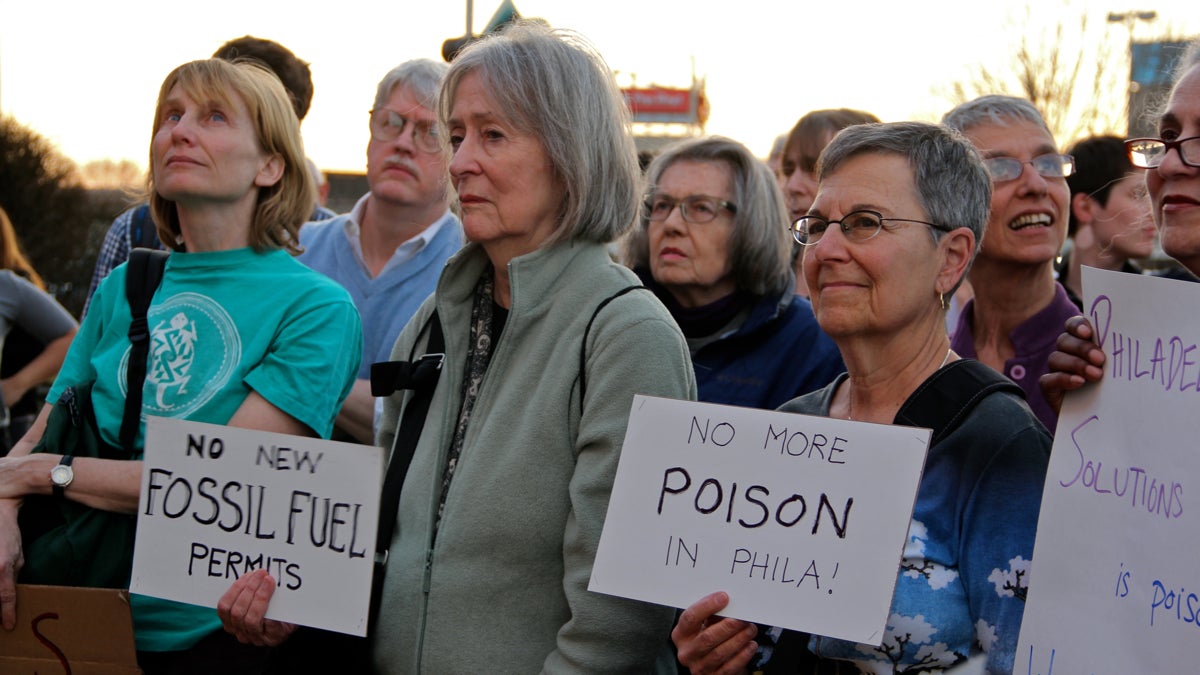StateImpact: Environmentalists target port proposals to fight Philadelphia “energy hub”

Environmental groups fighting efforts to make Philadelphia an “energy hub” for Marcellus Shale gas have found their first target: a proposal by a refiner to build an oil import/export terminal on the Delaware River.
The plan by Philadelphia Energy Solutions is one of six being evaluated by the Philadelphia Regional Port Authority, which wants to develop its 194 acre Southport Marine Terminal Complex. The company’s CEO Phil Rinaldi is one of the chief architects of the “energy hub” plan, which involves using Pennsylvania’s abundant supply of Marcellus Shale natural gas to revive the city’s manufacturing sector.
Rabbi Mordechai Liebling with the Green Justice Philly coalition said fighting Philadelphia Energy Solution’s bid for Southport is the group’s first shot across the bow.
“This is their first concrete plan at expansion,” said Liebling. “If they can get a port in here, there will be much more oil coming through Philadelphia, so we want to be clear we don’t want that to happen.”
Liebling was one of roughly 60 people from the coalition who packed a public meeting hosted by the Port Authority Wednesday night to oppose the refinery’s proposal for Southport. Green Justice Philly formed last October to fight the “energy hub” and push for local action on climate change by urging officials to reject projects that would promote the use of fossil fuels and increase greenhouse gas emissions.
At Wednesday night’s meeting, officials reviewed the six proposals that made the authority’s shortlist, including plans for a warehouse, a container port, and a storage and processing facility for cars. One proposal combines plans for a container port and a 35-acre “energy park” and another combines bulk product storage with the possibility of handling energy and fertilizer products down the road.
For about two hours, speakers questioned three port authority officials about how they would evaluate the environmental impacts of the proposals — and why they were considering any developers with plans that involve fossil fuels.
WHYY is your source for fact-based, in-depth journalism and information. As a nonprofit organization, we rely on financial support from readers like you. Please give today.



